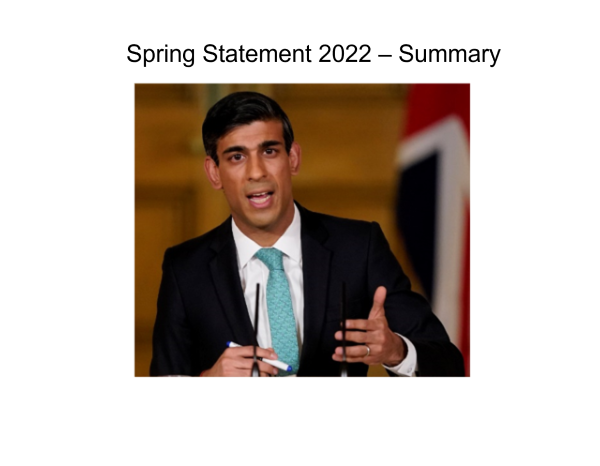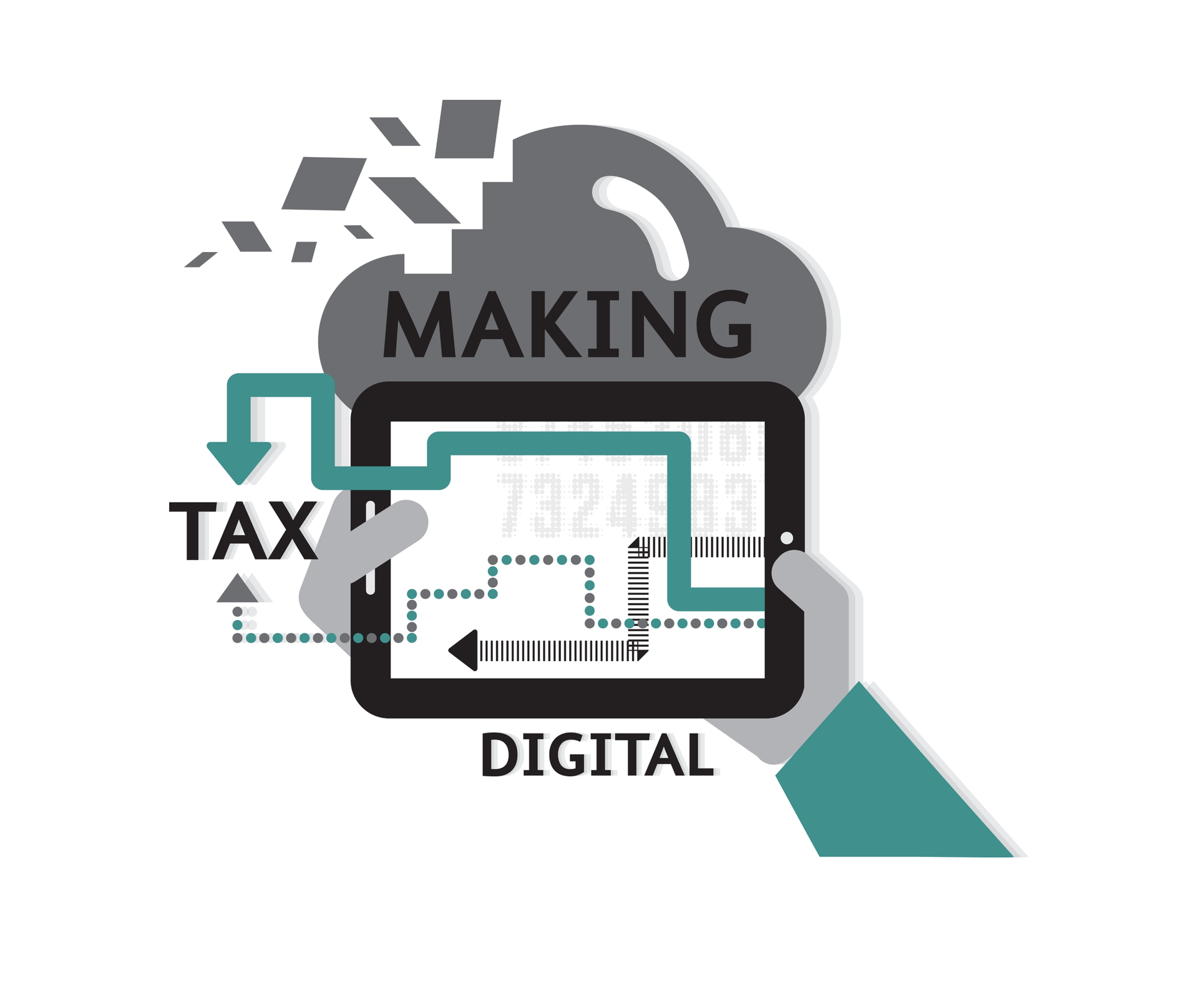
Yesterday’s Spring Statement by Chancellor Rishi Sunak gave us an update on the current state of the nation’s affairs and a view on what he expects the finances to look like going forward.
Positioned in the face of the sharpest rise in the cost of living that many of us have ever seen, the chancellor also announced some major, new policies that will affect individuals and businesses in the coming months and years.
The main points:
We will continue to see prices rise
First the bad, (but not unexpected) news. The chancellor confirmed that consumers should be braced for things getting more expensive at a faster rate later in the year.
The Office for National Statistics reported that prices rose by 6.2% in the 12 months to February - the fastest rise for 30 years. Forecasts from the Office for Budget Responsibility suggest that inflation will average 7.4% this year, peaking at around 9% at the end of the year.
The main question for those with jobs is whether pay will rise in line with prices. Matching wages to inflation could create a problem for the economy by creating an inflationary spiral. It’s highly unlikely that employers could afford to put up wages by that much when facing their own cost pressures, notably including energy bills.
Tax and National insurance
In September, the government announced that employees will pay 1.25p more in the pound in National Insurance contributions from April 2022. Significantly, the chancellor has now said that the earnings threshold at which people start to pay National Insurance will rise.
Currently, most workers start paying National Insurance (NI) contributions when their income hits £9,568, paying 12% of earnings between £9,568 and £50,270, then 2% on any earnings above £50,270. From July, National Insurance will be paid on income over £12,570 a year - the same level as income tax starts being paid.
Taking both measures into account, anyone who earns less than about £35,000 a year will pay less NI during the year. Those earning more than this amount will see a tax rise, but at a lower level than many have expected.
To give some examples:
- An employee who earns £20,000 a year will see an NI decrease of £180 in the tax year 2022-23, instead of the £89 rise that was expected before the announcement.
- For a £40,000 earner, it means a rise of £70, instead of a previously expected £339 rise
- For a £60,000 earner, it means a £320 rise, instead of a previously expected £589 rise
Self-employed people, who pay at a different rate, will, as continues to be the case, see slightly less of a benefit.
Early last year the chancellor said that income tax thresholds would be frozen at April 2021 levels for five years meaning that pay rises will push more people into higher tax bands. Yesterday, however, he pledged to reduce the basic rate of income tax by 1p in the pound before the end of the Parliament in 2024.
Help with heating
As we are now painfully aware, the cost of a typical annual gas and electricity bill will rise to the regulator's new, higher price cap taking effect on 1 April.
Mr Sunak reiterated the ‘decisive action’ action that has been taken to help people with their bills. This includes a £150 council tax rebate for 80% of households and a £200 discount on bills in October, though this will need to be repaid. There will also be expansion to a support scheme for vulnerable people.
In a longer-term move, the chancellor advised that for the next 5 years there would be no VAT on energy efficiency products such as solar panels, insulation, and heat pumps. The VAT rate on these products is currently 5%.
Fuel duty reduction
The eye-boggling increase in petrol prices – on average more than 40p per litre since last year's Spring Statement, has to some extent been addressed by a 5p a litre reduction in fuel duty for the next 12 months.
The RAC’s head of policy Nicholas Lyes said: ‘We’re pleased to see the Chancellor has given drivers some much-needed relief at the pumps, but the reality is that a 5p cut in duty is something of a drop in the ocean. In reality, reducing it by 5p will only take prices back to where they were just over a week ago. With the cut taking effect at 6pm tonight drivers will only notice the difference at the pumps once retailers have bought new fuel in at the lower rate. There’s also a very real risk retailers could just absorb some or all of the duty cut themselves by not lowering their prices. If this proves to be the case, it will be dire for drivers. It also wouldn’t be totally unexpected based on the biggest retailers not reducing their prices late last year when the oil price fell sharply.’
Benefits and pensions
Both benefits and the state pension will rise by 3.1% in April, though this is well below the rising cost of living. Many charities have, unsurprisingly, called on the chancellor to go further.
It is to be noted that if inflation does reach the predicted levels mentioned earlier, then benefits and the state pension could see a significant rise in April 2023, as the increases are usually linked to the inflation rate in the preceding autumn.
Local councils will be given another £500m in the Household Support Fund, which supports vulnerable people with payments and grants such as vouchers to help pay their bills. The chancellor said, ’Local authorities are best placed to help those in need in their local areas so they will receive this funding from April’.
Support for Ukraine
So far, the UK government has committed around £400 million in urgent economic and humanitarian support to Ukraine since the invasion, including fiscal support grants, donations, and humanitarian aid. In the Spring Statement the chancellor advised:
‘The government stands ready to provide up to $500 million in guarantees for multilateral lending to Ukraine, enabling Multilateral Development Banks like the World Bank to significantly scale up their financial support if required.
The government has launched ‘Homes for Ukraine’, a new sponsorship humanitarian visa scheme to give Ukrainians forced to flee a route to safety, and the Ukraine Family Visa Scheme, allowing British nationals and Ukraine nationals settled here to bring Ukrainian family members to the UK. To support refugees being sponsored by the new Homes for Ukraine scheme, the government has committed to provide local authorities with £10,500 per person for support services, and between £3,000 and £8,755 per pupil for education services depending on phase of education, as well as £350 per month for sponsors for up to 12 months.’
Our view
Aside from the personal benefits that the reduction of income tax will bring, the north east’s haulage sector will undoubtedly benefit from the fuel duty cut.
For the 130,000 self-employed people in the north east, the benefits are once again less than for salaried employees.
Little, if any mention was made of the skills shortage that is impacting so many businesses. This must become an urgent point for discussion on a national, as well as a regional level.
Taking a broader view, it is heartening to see that the appalling situation in Ukraine is being given prominent attention in this Statement. We continue to support all of those affected by the atrocities of war.
The information provided in this blog is for general informational purposes only and should not be considered professional advice. As far as we are aware, the content is accurate at time of publication. Torgersens assumes no responsibility for errors or omissions in the content or for any actions taken based on the information provided.




.jpg)



